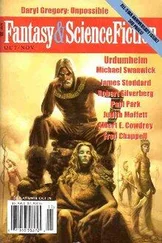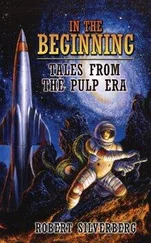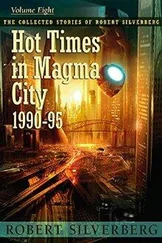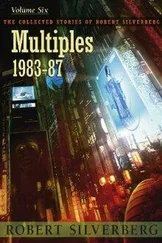Robert Silverberg - To Open the Sky
Здесь есть возможность читать онлайн «Robert Silverberg - To Open the Sky» весь текст электронной книги совершенно бесплатно (целиком полную версию без сокращений). В некоторых случаях можно слушать аудио, скачать через торрент в формате fb2 и присутствует краткое содержание. Год выпуска: 1967, Издательство: Ballantine Books, Жанр: Фантастика и фэнтези, на английском языке. Описание произведения, (предисловие) а так же отзывы посетителей доступны на портале библиотеки ЛибКат.
- Название:To Open the Sky
- Автор:
- Издательство:Ballantine Books
- Жанр:
- Год:1967
- ISBN:нет данных
- Рейтинг книги:5 / 5. Голосов: 1
-
Избранное:Добавить в избранное
- Отзывы:
-
Ваша оценка:
- 100
- 1
- 2
- 3
- 4
- 5
To Open the Sky: краткое содержание, описание и аннотация
Предлагаем к чтению аннотацию, описание, краткое содержание или предисловие (зависит от того, что написал сам автор книги «To Open the Sky»). Если вы не нашли необходимую информацию о книге — напишите в комментариях, мы постараемся отыскать её.
To Open the Sky — читать онлайн бесплатно полную книгу (весь текст) целиком
Ниже представлен текст книги, разбитый по страницам. Система сохранения места последней прочитанной страницы, позволяет с удобством читать онлайн бесплатно книгу «To Open the Sky», без необходимости каждый раз заново искать на чём Вы остановились. Поставьте закладку, и сможете в любой момент перейти на страницу, на которой закончили чтение.
Интервал:
Закладка:
“Ifs only the second generation,” Mondschein said. “You have to be patient” He smiled at that—counseling patience to others—and added, “I think the Brotherhood is heading in the right direction.”
“We don’t, obviously,” said the pale one. “When we failed to reform from within, we had to leave and begin our own campaign, parallel to the original one. The long-range goals are the same. Personal immortality through bodily regeneration. And fail development of extrasensory powers, loading to new methods of communication and transportation. That’s what we want—not the right to decide local tax issues.”
Mondschein said, “First you get control of the governments.
Then you concentrate on the long-range goals.”
“Not necessary,” snapped the squat Harmonist. “Direct action is what we’re interested in. We’re confident of success, too. One way or another, we’ll achieve our purposes.”
The slim woman gave Mondschein more wine. He tried to shake her away, but she insisted on filling his glass, and he drank. Then he said, “I presume you didn’t waft me off to Rome just to tell me your opinion of the Brotherhood. What do you need me for?”
“Suppose we were to get you transferred to Santa Fe,” the squat one said.
Mondschein sat bolt upright. His hand tightened on the wineglass, nearly breaking it.
“How could you do that?”
“Suppose we could. Would you be willing to obtain certain information from the laboratories there and transmit it to us?”
“Spy for you?”
“You could call it that.”
“It sounds ugly,” Mondschein said.
“You’d have a reward for it.”
“It better be a good one.”
The heretic leaned forward and said quietly, “Well offer you a tenth-level post in our organization. You’d have to wait fifteen years to get that high in the Brotherhood. We’re a much smaller operation; you can rise in our hierarchy much faster than where you are. An ambitious man like you could be very close to the top before he was fifty.”
“But what good is it?” Mondschein asked. “To get close to the top in the second-best hierarchy?”
“Ah, but we won’t be second-best! Not with the information you’ll provide for us. That will allow us to grow. Millions of people will desert the Brotherhood for us when they see what we have to offer—all that they have, plus our own values. We’ll expand rapidly. And you’ll have a position of high rank, because you threw your lot in with us at the beginning.”
Mondschein saw the logic of that. The Brotherhood was swollen already, wealthy, powerful, top-heavy with entrenched bureaucrats. There was no room for advancement there. But if he were to transfer his allegiance to a small but dynamic group with ambitions that rivaled his own—
“It won’t work,” he said sadly.
“Why?”
“Assuming you can wangle me into Santa Fe, I’ll be screened by espers long before I get there. They’ll know I’m coming as a spy, and they’ll screen me out. My memories of this conversation will give me away.”
The squat man smiled broadly. “Why do you think you’ll remember this conversation? We have our espers, too, Acolyte Mondschein!”
four
The room in which Christopher Mondschein found himself was eerily empty. It was a perfect square, probably built within a tolerance of hundredths of a millimeter, and there was nothing at all in it but Mondschein himself. No furniture, no windows, not so much as a cobweb. Shifting his weight uncomfortably from foot to foot, he stared up at the high ceiling, searching without success for the source of the steady, even illumination. He did not even know what city he was in. They had taken him out of Rome just as the sun was rising, and he might be in Jakarta now, or Benares, or perhaps Akron.
He bad profound misgivings about all this. The Harmonists had assured him that there would be no risks, but Mondschein was not so sure. The Brotherhood had not attained its eminence without developing ways of protecting itself. For all the assurances to the contrary, he might well be detected long before he got into those secret laboratories at Santa Fe, and it would not go happily for him afterward.
The Brotherhood had its way of punishing those who betrayed it. Behind the benevolence was a certain streak of necessary cruelty. Mondschein had heard the stories: the one about the regional supervisor in the Philippines who had let himself be beguiled into providing minutes of the high councils to certain anti-Vorsterite police officials, for example.
Perhaps it was apocryphal. Mondschein had heard that the man had been taken to Santa Fe to undergo the loss of his pain receptors. A pleasant fate, never to feel pain again? Hardly. Pain was the measure of safety. Without pain, how did one know whether something was too hot or too cold to touch? A thousand little injuries resulted: burns, cuts, abrasions. The body eroded away. A finger here, a nose there, an eyeball, a swatch of skin—why, someone could devour his own tongue and not realize it.
Mondschein shuddered. The seamless wall in front of him abruptly telescoped and a man entered the room. The wall closed behind him.
“Are you the esper?” Mondschein blurted nervously.
The man nodded. He was without unusual features. His face had a vaguely Eurasian cast, Mondschein imagined. His lips were thin, his hair glossily dark, his complexion almost olive., There was something of a fragile look to him.
“Lie down on the floor,” the esper said in a soft, tarry voice. “Please relax. You are afraid of me, and you should not be afraid.”
“Why shouldn’t I? You’re going to meddle with my mind!”
“Please. Relax.”
Mondschein gave it a try. He settled on the yielding, rubbery floor and put his hands by his sides. The esper sank into the lotus position in one corner of the room, not looking at Mondschein. The acolyte waited uncertainly.
He had seen a few espers before. There were a goad many of them now; after years of doubt and confusion, their traits had been isolated and recognized more than a century ago, and a fair amount of deliberate esper-to-esper mating had increased their number. The talents were still unpredictable, though. Most of the espers had little control over their abilities. They were unstable individuals, besides, generally high-strung, often lapsing into psychosis under stress. Mondschein did not like the idea of being locked in a windowless room with a psychotic esper.
And what if the esper had a malicious streak? What if, instead of simply inducing selective amnesia in Mondschein, he decided to make wholesale alterations in his memory patterns? It might happen that—“You can get up now,” the esper said brusquely. “It’s done.”
“What’s done?” Mondschein asked.
The esper laughed triumphantly. “You don’t need to know, fool. It’s done, that’s all.”
The wall opened a second time. The esper left. Mondschein stood up, feeling strangely empty, wondering somberly where he was and what was happening to him. He had been going home on the slidewalk, and a man had jostled him, and then—
A slim woman with improbable cheekbones and eyelids of glittering platinum foil said, “Come this way, please.”
“Why should I?”
‘Trust me. Come this way.”
Mondschein sighed and let her lead him down a narrow corridor into another room, brightly painted and lit. A coffin-sized metal tank stood in one corner of the room. Mondschein recognized it, of course. It was a sensory deprivation chamber, a Nothing Chamber, in which one floated in a warm nutrient bath, sight and hearing cut off, gravity’s pull negated. The Nothing Chamber was an instrument for total relaxation. It could also have more sinister uses: a man who spent too much time in a Nothing Chamber became pliant, easily indoctrinated.
Читать дальшеИнтервал:
Закладка:
Похожие книги на «To Open the Sky»
Представляем Вашему вниманию похожие книги на «To Open the Sky» списком для выбора. Мы отобрали схожую по названию и смыслу литературу в надежде предоставить читателям больше вариантов отыскать новые, интересные, ещё непрочитанные произведения.
Обсуждение, отзывы о книге «To Open the Sky» и просто собственные мнения читателей. Оставьте ваши комментарии, напишите, что Вы думаете о произведении, его смысле или главных героях. Укажите что конкретно понравилось, а что нет, и почему Вы так считаете.












